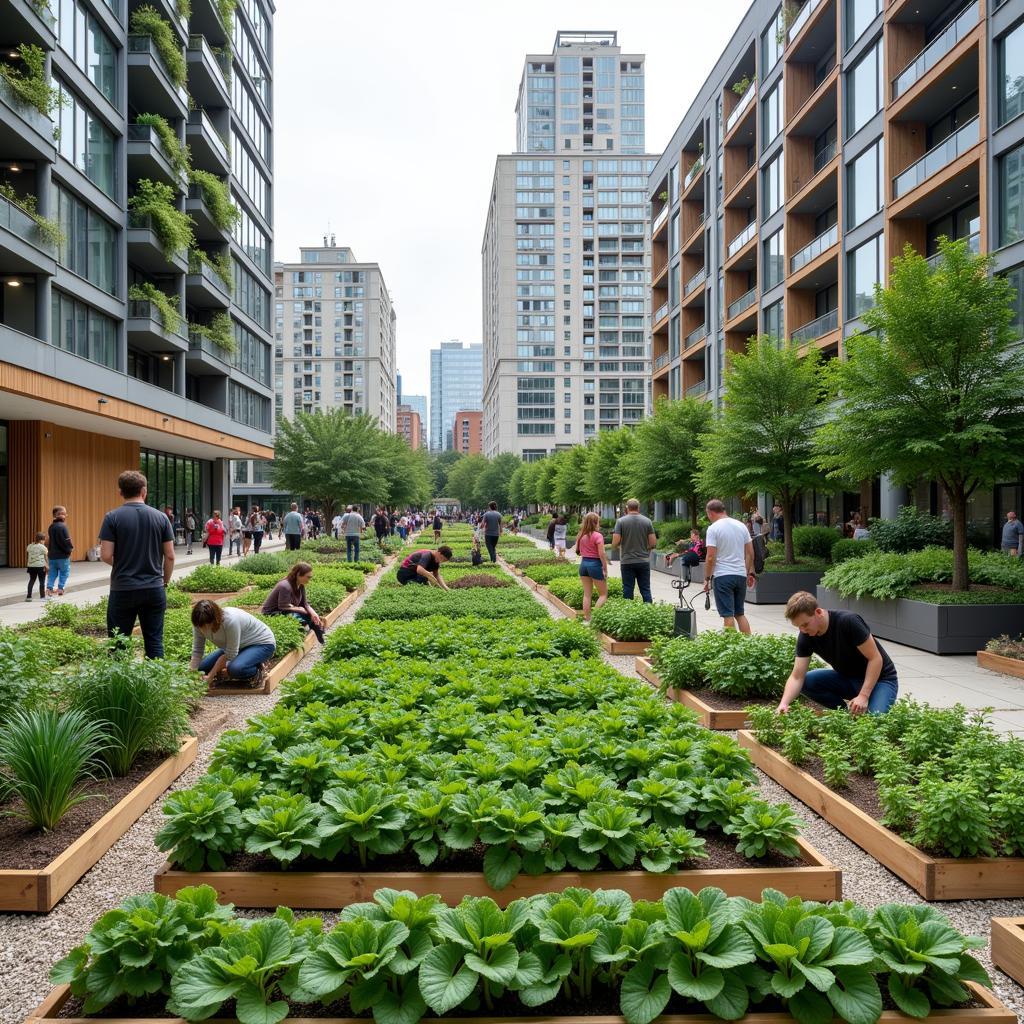how urban farming can alleviate food insecurity has become an increasingly popular topic in IELTS Writing Task 2, appearing in various forms over the past few years. Based on analysis of recent exam patterns, questions about urban agriculture and community gardens have appeared approximately 2-3 times annually since 2019, making it a highly relevant subject for IELTS candidates.

Analysis of Common Question Types
The most frequently encountered question type related to this topic is the opinion/discussion format. Here’s a recent example from 2023:
Some people believe that urban farming and community gardens should be mandatory in all cities to improve food security and community wellbeing. To what extent do you agree or disagree with this view?
Understanding the Question
- Topic: Urban farming and community gardens
- Task: Opinion/Agree or Disagree
- Key aspects to address:
- Mandatory implementation
- Food security benefits
- Community wellbeing impact
- Feasibility considerations
Sample Essays with Band Score Analysis
Band 8.5 Sample Essay
In recent years, The impact of food deserts on nutrition has sparked discussions about implementing mandatory urban farming initiatives. While I partially agree with making urban agriculture compulsory, I believe a more flexible approach would be more effective.
Mandatory urban farming could indeed offer significant advantages. Firstly, it would enhance food security by providing local, fresh produce to city residents. For instance, Singapore has successfully integrated rooftop gardens into its urban planning, reducing dependency on imported food. Additionally, community gardens foster social connections and improve mental wellbeing, as demonstrated by studies showing reduced stress levels among participants in communal gardening projects.
However, enforcing mandatory urban farming presents several challenges. The primary concern is the varying suitability of different urban environments for agricultural activities. Cities with limited space or unsuitable climate conditions might struggle to implement effective farming programs. Moreover, the financial burden of establishing and maintaining these facilities could strain municipal budgets and taxpayers.
A more balanced approach would be to incentivize rather than mandate urban farming initiatives. Local governments could offer tax benefits, technical support, and educational resources to encourage voluntary participation. This strategy has proven successful in cities like Toronto, where community-led urban agriculture projects have flourished without strict regulations.
In conclusion, while urban farming offers valuable benefits, making it mandatory may be counterproductive. Instead, creating supportive policies and incentives would better promote sustainable urban agriculture while respecting local conditions and resources.
Band 6.5 Sample Essay
impact of urban farming on food security is an important topic today. I disagree with making urban farming mandatory in cities because it has many problems.
First, many cities don’t have enough space for farming. Big cities are already crowded with buildings and roads. It’s difficult to find places for gardens. Also, some people don’t know how to grow plants and might not want to learn. Making them do farming is not fair.
However, urban farming has some good points. It can help poor people get fresh food. When people grow vegetables in their community, they spend less money on food. Also, working in gardens makes people happy and healthy. In my country, some schools have small gardens where students learn about plants.
But making it mandatory has problems. It costs a lot of money to start gardens in cities. The government needs to spend money on other important things like schools and hospitals. Also, some places have bad weather that makes farming difficult.
In conclusion, I think urban farming is good but shouldn’t be mandatory. Cities should encourage people to do farming if they want to, but not force everyone to participate.
Key Vocabulary
- Urban agriculture (n) /ˈɜːbən ˌæɡrɪˈkʌltʃə/ – farming activities in city areas
- Food security (n) /fuːd sɪˈkjʊərəti/ – reliable access to sufficient food
- Mandatory (adj) /ˈmændətəri/ – required by law
- Implementation (n) /ˌɪmplɪmenˈteɪʃən/ – the process of putting a plan into action
- Incentivize (v) /ɪnˈsentɪvaɪz/ – motivate through rewards
- Sustainable (adj) /səˈsteɪnəbəl/ – able to continue over time without damaging resources
- Municipal (adj) /mjuːˈnɪsɪpəl/ – relating to a city or town administration
To practice your writing skills, try composing your own essay on this topic and share it in the comments. Consider these alternative questions:
- How can urban farming contribute to environmental sustainability in modern cities?
- Should governments provide financial support for community garden initiatives?
- What are the advantages and disadvantages of converting unused urban spaces into community gardens?
should urban farming be encouraged is likely to remain a significant topic in future IELTS exams, so regular practice with these types of questions is highly recommended.